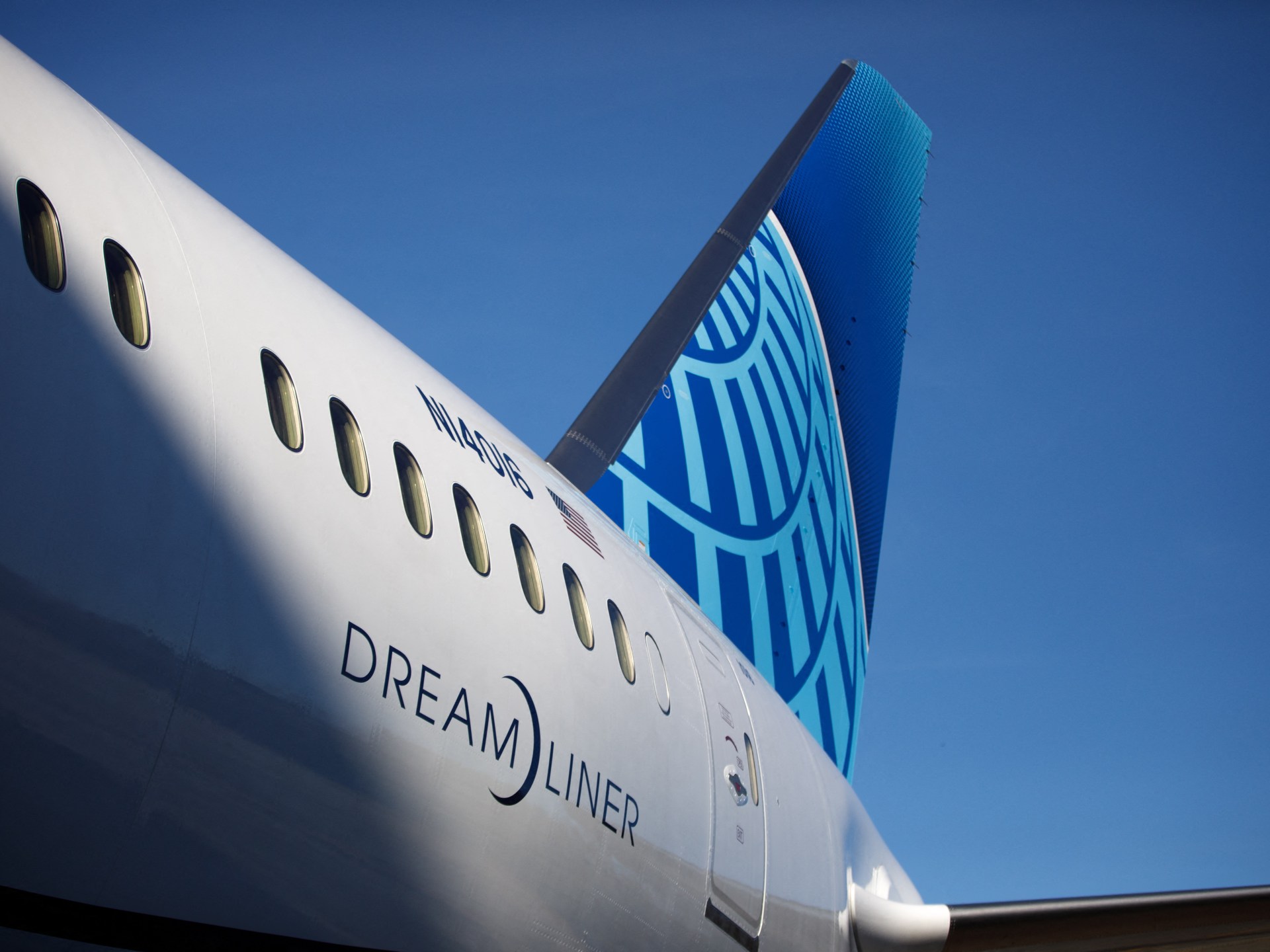US officials probe new whistleblower claims against Boeing
Engineer alleges that aircraft giant took unsafe shortcuts in the production of the 787 Dreamliner.
US aviation authorities have begun investigating new whistleblower claims accusing Boeing of poor safety standards, the latest in a series of safety-related controversies at the beleaguered aircraft giant.
Sam Salehpour has accused Boeing of retaliating against him after he identified engineering flaws that affected the structural integrity of the company’s wide-body 787 Dreamliner and 777 jets.
Salehpour, who has worked at Boeing as an engineer for more than a decade, alleges that the aircraft maker took shortcuts in the production of the 787 Dreamliner, resulting in sections of fuselages being improperly fastened together.
He has also alleged witnessing safety problems in the production of the 777, including cases of workers jumping on misaligned parts to get them to fit together.
“Our client identified serious safety concerns and did everything possible to bring those concerns to the attention of Boeing officials,” Debra Katz and Lisa Banks, lawyers representing Salehpour, said in a statement on Tuesday.
“Rather than heeding his warnings, Boeing prioritised getting the planes to market as quickly as possible, despite the known, well-substantiated issues Mr. Salehpour raised. The engineering problems identified directly affect the structural integrity of Boeing’s 787 and 777 planes and unless corrected will impact the entire aviation industry and all who fly.”
The Federal Aviation Administration (FAA) confirmed that it was investigating the claims after they were detailed in public for the first time in interviews with The New York Times.
A US Senate subcommittee has also summoned Boeing CEO David Calhoun to appear next week to answer questions about the allegations.
Boeing said in a statement that it was “fully confident” in the 787 Dreamliner and denied retaliating against whistleblowers.
“We are fully confident in the 787 Dreamliner because of the comprehensive work done to ensure the quality and long-term safety of the aircraft. These claims about the structural integrity of the 787 are inaccurate,” a spokesperson said.
“The issues raised have been subject to rigorous engineering examination under FAA oversight. This analysis has validated that these issues do not present any safety concerns and the aircraft will maintain its service life over several decades. We continue to monitor these issues under established regulatory protocols and encourage all employees to speak up when issues arise. Retaliation is strictly prohibited at Boeing.”
Boeing also said allegations related to the 777 were “inaccurate”.
Boeing, which dominates the market for commercial aircraft along with Europe’s Airbus, has faced intense scrutiny over its safety record since an incident in January in which a door panel on a Boeing 737 MAX blew out mid-flight.
The FAA has ordered Boeing to halt plans to expand production of the jet until it shows an improvement in operations and quality control.
A preliminary report by the US National Transportation Safety Board into that incident found evidence suggesting that four key bolts designed to hold the door in place had been missing.
The aircraft manufacturer has been involved in a series of less serious incidents since then, including an incident on Sunday in which an engine cover fell off a Boeing plane shortly after takeoff in the US city of Denver.
In 2018 and 2019, two fatal crashes involving the Boeing 737 MAX resulted in the aircraft being grounded worldwide for more than 18 months.
Last month, another Boeing whistleblower, John Barnett, was found dead from an apparent self-inflicted gunshot wound days after giving testimony in a lawsuit accusing the company of retaliation.




